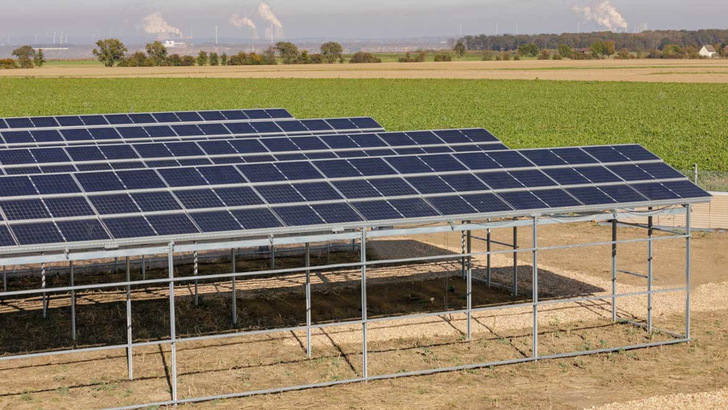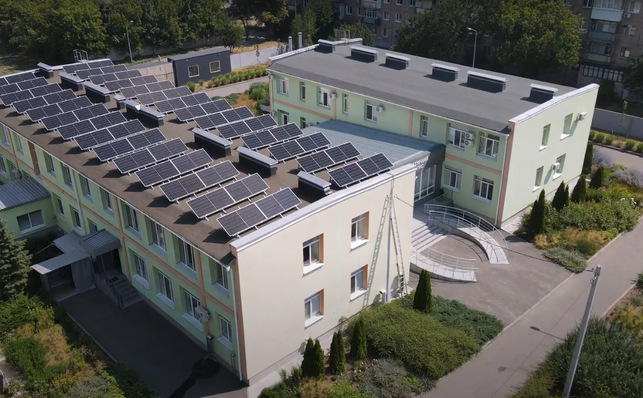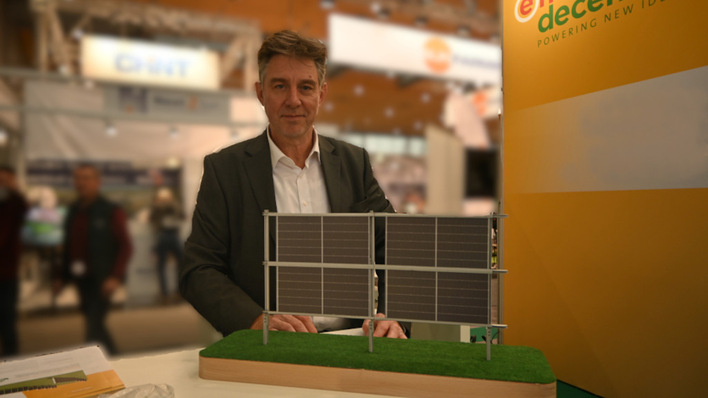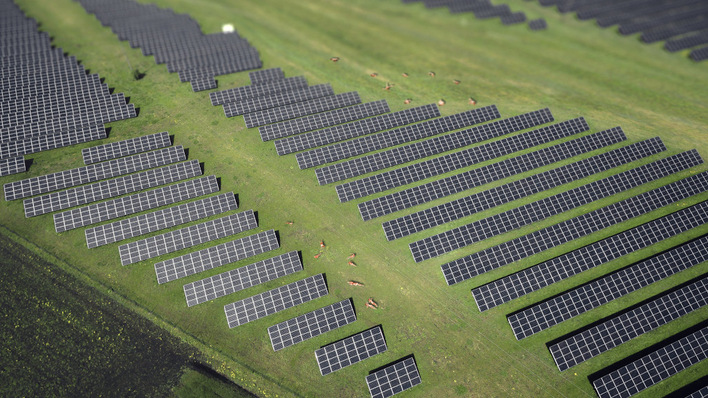The project developer Sunfarming, based near Berlin, has been commissioned by the Jülich Research Centre (FZJ) and Fraunhofer ISE to develop two new types of plants for the solar roofing of agricultural land. Sunfarming has installed these two systems at the new development site Morschenich-Alt near Jülich.
Working with vehicles under the modules
In developing the new types of systems, Sunfarming started with a system that the company has already built several times. This Food & Energy System is based on a solar park construction in which the mounting posts have been extended. This creates a clearance height of 2.50 metres. The mounting posts are also further apart than usual. This makes it possible to work with agricultural machinery under the modules.
See also: New special issues on Agri-PV published together with DLG
The second installation is based on a tracker system. Sunfarming has also extended the mounting posts of the Food & Energy Tracking System so that the modules track the sun at a height of four metres. This system is also designed so that agricultural vehicles can drive underneath it. At the same time, the tracking of the modules increases the solar power yield. Overall, the system reaches a height of six metres at the maximum angle of attack of the modules on the trackers.
Keeping an eye on crop yield and water management
However, the plants are not only used to harvest food and electricity on the land at the same time. After all, they will supply 300,000 kilowatts of electricity every year. They are also test facilities for the Institute of Plant Sciences at the Jülich Research Centre. The aim here is to investigate the influence of different shading situations on plant yields. At the same time, the project partners want to use the plants to develop efficient rainwater management.
Also interesting: Solarzaun implements first project in Switzerland
Sunfarming's developers worked on the solutions for a total of nine months. They were installed at the end of 2021 and are scheduled to go into operation before the end of February 2022. The solar power produced will be used to supply the research site in Jülich, among other places. "We have already been working successfully with the Jülich Research Centre for many years, especially in the area of agriphotovoltaic systems," explains David Morr, Head of Food & Energy Projects at Sunfarming. This involves research into the influence of the shading of various plants by the solar modules. (su/mfo)








